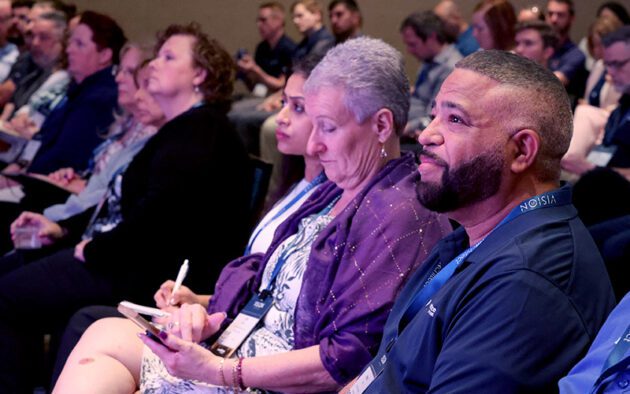This blog series has reviewed shifts in what defines a high-quality employee experience from the perspectives of both managers and employees based on findings from the Third Annual Global Employee Study.
In this blog, we’ll recap an article originally published on LinkedIn by our Chief Marketing and Customer Experience Officer, Sandra Moran, which discusses how businesses can learn valuable lessons from dissatisfied employees. Their needs reveal practical ways to boost engagement and avoid costly turnover.
Often, even if managers recognise employees’ needs, they lack effective tools to meet them. Organisations can be unsure of which investments will have the most impact on their workers, and these are the cases where the most vocal critics can provide clear insights for improvement. Feedback from dissatisfied employees will reveal what employee experience features matter most.
By examining our Global Employee Experience Study through the lens of a dissatisfied employee’s experience, we learned that they have three common characteristics:
- They’re open to leaving their place of work in the next six months for an employer who provides rostering flexibility.
- They don’t feel valued by their employer due to a lack of investment in their development.
- They struggle to maintain work/life balance due to poor communication technology.
These results point to practical strategies organisations can adopt to improve employee experience.
Enable Employee Autonomy With Roster Flexibility
- Rostering flexibility remains one of the most important employee experience aspects
- 79% of dissatisfied employees want to work for an employer that offers rostering flexibility
- 73% are willing to leave their current job for better rostering flexibility
- Outdated manual processes can’t meet compliance and pay transparency requirements
- Modern workforce management technology enables accurate forecasting, self-service and pay visibility
Invest in Frontline Worker Development That Meets Them Where They Are
- Deskless workers are often excluded from corporate career pathing efforts
- Employees don’t get regular communication through corporate emails and intranet pages
- Traditional Learning and Development methods don’t include retrieval via mobile devices
- 53% of dissatisfied employees prefer mobile device access for job information and training
Integrated Communications Keep Employees Engaged
- Give workers feedback opportunities—dissatisfaction can’t be addressed if it’s unknown
- 52% of unhappy workers struggle with work/life balance due to communication technology
- 40% of employees feel unrecognised
- Consistent communication is key for engagement, consider integrated platforms that combine flexibility, communication and recognition
Learn From Employee Dissatisfaction
Replacing a single employee can cost up to 40% of their salary, not to mention lost productivity, disrupted operations and damage to your reputation. These costs escalate with senior departures. But the biggest cost might be missed opportunities. Heather McGowan, Future of Work Strategist, argues that our knowledge-based economy prioritises shareholder value at the expense of human potential. We’re entering the “Human Value Era,” where investing in your workforce is the key to success.
Engaged employees bring expertise, optimise processes and deliver their best work. Studies show a clear link between employee experience and customer satisfaction. The results from Gallup’s 2024 State of the Workplace report reveals that businesses with highly engaged employees experience significant benefits compared to those with low engagement:
- Business units in the top quartile of employee engagement see 23% higher profitability
- Customer loyalty increases by 10% with engaged employees
- Highly engaged business units achieve an 18% increase in sales productivity and a 14% increase in overall productivity
- There’s a 78% difference in absenteeism between the top-quartile and bottom-quartile engaged business units
Imagine the impact on employee engagement if resources shifted from recruitment automation to understanding—and addressing—employees’ needs. There’s plenty to learn from their feedback.
To learn more about how to combat disengagement within your organisation, read the Third Global Annual Employee Experience Study.




